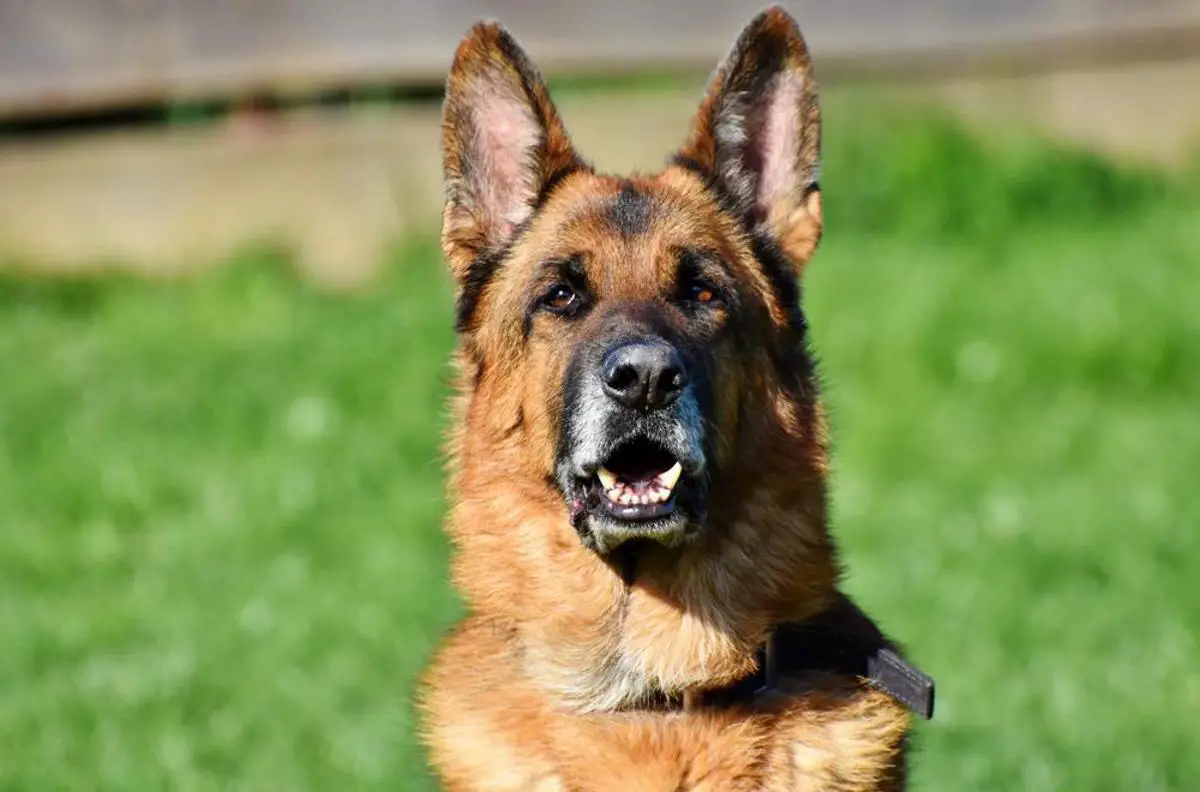Quick Links: Table of Contents
- German Shepherd Dog Breed Overview
- History of the German Shepherd Dog Breed. Where German Shepherd Dogs came from
- What the German Shepherd Dog Looks Like
- How Much is the German Shepherd Dog Puppy?
- Best German Shepherd Dog Breeders
- Adopting or Rescuing the German Shepherd Dog
- German Shepherd Dog Growth
- The Temperament of the German Shepherd Dog
- How Long German Shepherd Dogs Live
- German Shepherd Dog Litter Size
- How Fast German Shepherd Dogs Can Run
- Good Names for German Shepherd Dogs
- How Intelligent are German Shepherd Dogs?
- How Popular are German Shepherd Dogs with New Dog Owners?
- Health Problems in German Shepherd Dogs and How to Prevent Them
- How to Take Care of German Shepherd Dog
- Dog Breeds That Are Similar to German Shepherd Dogs
- Other Things to Know About German Shepherd Dogs
German Shepherd Dog Breed Overview
The German Shepherd Dog is a large-sized dog.
The adult German Shepherd Dog stands 1 foot, 10 inches to 2 feet, 2 inches tall .
The German Shepherd Dog belongs to the Herding Dogs group.
Dogs in the Herding Dogs group, like the German Shepherd Dog, were bred for moving livestock, including sheep, cattle, and even reindeer.
Herding dogs work closely with their human shepherds, and their natural intelligence and responsiveness make them highly trainable.
Herding dogs have high levels of energy, which needs to be channeled properly to prevent destructive behavior.
Herding breeds are protective of their people and property and make excellent watchdogs. Their intelligence, agility, and activity level make them well suited to dog sports.
The fact that the German Shepherd Dog belongs to the Herding Dogs group is one of the reasons why German Shepherd Dogs have the personality and temperament that they have.
The temperament of the German Shepherd Dog is generally described as:
- Alert
- Confident
- Courageous
- Curious
- Intelligent
- Loyal
- Obedient
- Protective
- Stubborn
- Watchful
History of the German Shepherd Dog Breed. Where German Shepherd Dogs came from
The German Shepherd originated in Germany, where the breed got its name.
Captain Max von Stephanitz, who helped develop the breed into a versatile working dog, is credited with the dog`s establishment.
This canine evolved due to a desire to create a breed capable of leading and patrolling a large flock of sheep.
While early documentation on the breed is limited, it is believed that von Stephanitz bred local shepherds with different hair types to create the breed.
The German Shepherd`s original purpose was to herd sheep in farms, but the German army later modified it to work for the military.
These hardworking dogs also delivered food to German soldiers during World War I.
.
What the German Shepherd Dog Looks Like
The German Shepherd has the appearance of a robust and versatile breed.
Their majestic stance exudes grace and agility.
Their physique is muscular and well-balanced.
Their body is longer than tall, emphasizing their powerful physique.
Their front legs are straight, with arched toes and firm pads on their compact feet.
The nails are short and black.
They have almond-shaped brown eyes that are average in size and proportion to their body.
Their constant expression is one of intelligence.
When the dog is alert, the ears are pointy and erect.
With a strong muzzle and a black nose, the neck leads to a powerful back.
The dog has a bushy tail that curves slightly.
Their tail curves more distinctly when they are excited.
.
How Much is the German Shepherd Dog Puppy?

The average price of a German Shepherd Dog puppy is $1280. The price of a German Shepherd Dog puppy ranges from $800 to $1500.
A lot of factors determine the price of the German Shepherd Dog. These factors include what health records the German Shepherd Dog puppy has, the lineage of the German Shepherd Dog puppy, the US state the breeder is located in, etc.
To estimate how much you can expect to pay for a puppy German Shepherd Dog based on the many factors that determine the price of the German Shepherd Dog puppy, check out our calculator that lets you estimate how much you should expect to pay for the German Shepherd Dog puppy based on what you want in the puppy.
When looking to buy a puppy, look at buying a puppy only from well-established breeders that breed puppies primarily for the love of the German Shepherd Dog breed, and secondarily for profit. Do not buy a puppy from a puppy mill. Puppy mills mass-produce puppies in bad living conditions for maximum profit.
You may also consider adopting instead of buying a puppy. Adoption costs are very low compared to the price of a puppy.
Best German Shepherd Dog Breeders
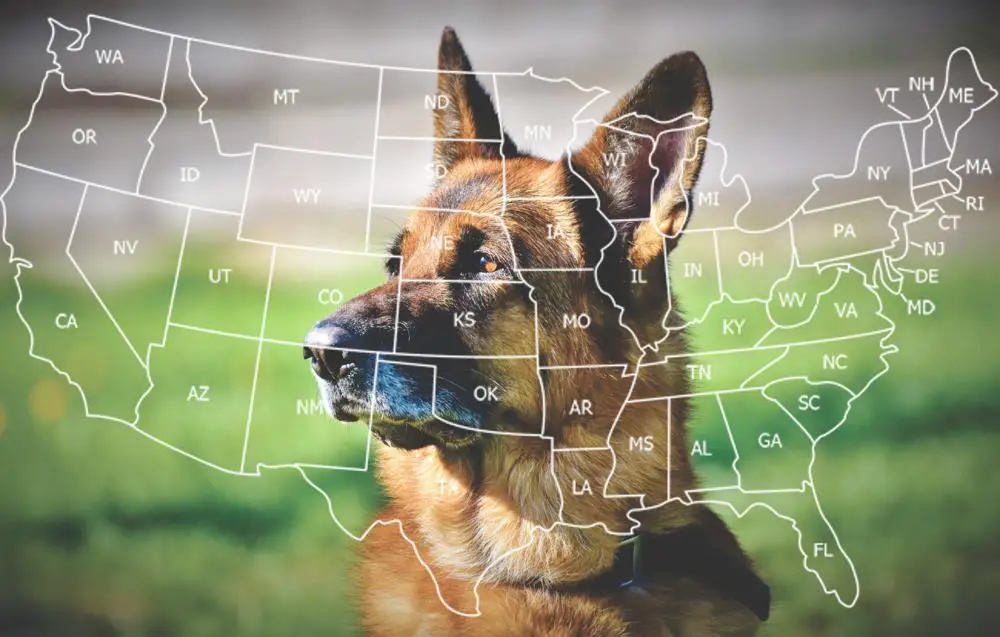
We have researched reputable German Shepherd Dog breeders that you can buy a puppy.
Go to this page for our complete list of reputable German Shepherd Dog breeders in various states in the United States.
On this page, you will see how much these breeders sell their puppies for, and how many puppies they have available.
A few of these breeders are listed below.
Miami German Shepherds
Puppy Price: $1500.00
Randall Ellison
Puppy Price: Check with breeder
BGM German Shepherd Kennels
Puppy Price: Check with breeder
Kimberly Cordova
Puppy Price: Check with breeder
Robin Stratton
Puppy Price: Check with breeder
Adopting or Rescuing the German Shepherd Dog
You may consider adopting a dog instead of buying a puppy. Many dogs, German Shepherd Dogs included, are currently available for adoption in your local dog shelters.
These helpless but adorable dogs are waiting in dog shelters hoping that someday someone will rescue them. Dog adoption costs are lesser than the cost of a new puppy. Dog adoption costs are usually around $300 or even less.
In addition to your local dog shelter, another good place to find dogs that are available for adoption is petfinder.com.
Below is an adorable Male German Shepherd Dog named Gloria`S Pups (2 Of 3) that is currently available for adoption on Petfinder.com. You can find other lovely German Shepherd Dogs like Gloria`S Pups (2 Of 3) on pefinder.com.

Clifford is the name of another German Shepherd Dog (Male) on petfinder.com that is looking for a new forever home.
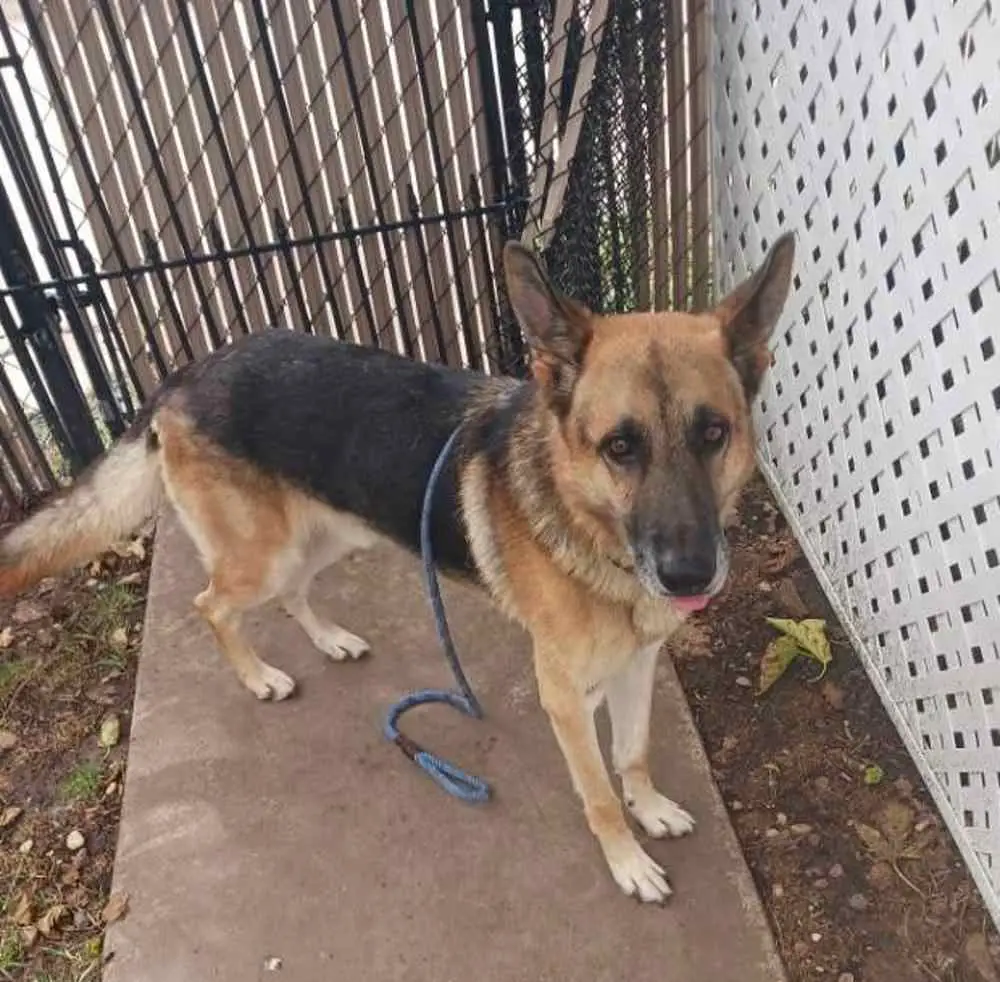
You can find more German Shepherd Dogs that are available for adoption on petfinder.
German Shepherd Dog Growth
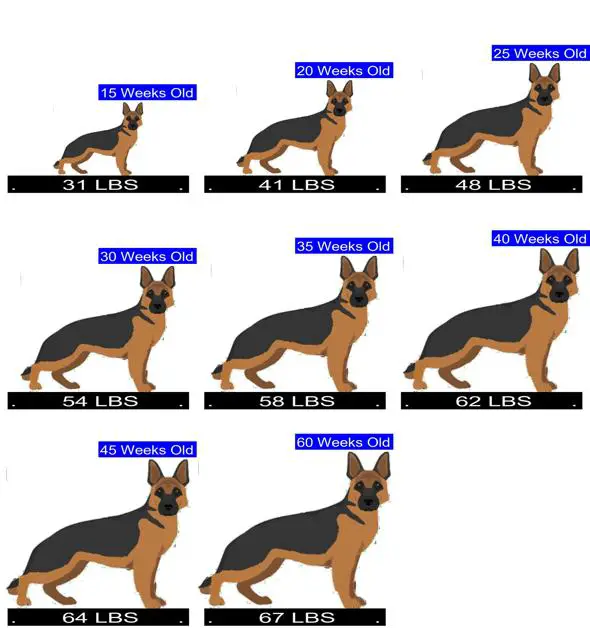
New German Shepherd Dog owners need to know about the growth of their German Shepherd Dogs. This will help them plan their living spaces accordingly.
Also, knowing the typical growth pattern of the German Shepherd Dog will help new owners catch the abnormal growth of their German Shepherd Dog early.
See our calculator for predicting how big your German Shepherd Dog puppy will get. You will also learn about the typical weight of the German Shepherd Dog at different ages and how to catch abnormal growth in your German Shepherd Dog


The Temperament of the German Shepherd Dog
The temperament of the German Shepherd Dog based can be summarized as in the table below.
The table shows the scores of the German Shepherd Dog for 13 important dog behavioral factors.
We obtained these scores by analyzing raw data from the C-BARQ dog personality survey tool. The higher the score of a dog for a factor, the worse the temperament of the dog regarding that factor.
The C-BARQ tool was developed by researchers from the University of Pennsylvania, and it is a scientific tool that is used worldwide for reliably measuring the temperament of dog breeds.
See our complete analysis of the temperament of the German Shepherd Dog here.
| Factor | Score |
|---|---|
| Dog Directed Aggression | 66.2 percent |
| Energy Level | 62.1 percent |
| Attachment Attention Seeking | 54.9 percent |
| Prey Drive | 54.8 percent |
| Stranger Directed Aggression | 48.0 percent |
| Excitability | 42.9 percent |
| Dog Rivalry | 38.6 percent |
| Dog Directed Fear | 37.2 percent |
| Separation Related Behavior | 30.7 percent |
| Stranger Directed Fear | 27.3 percent |
| Touch Sensitivity | 24.4 percent |
| Nonsocial Fear | 22.3 percent |
| Stubbornness | 14.0 percent |
| Owner Directed Aggression | 10.4 percent |

How Long German Shepherd Dogs Live
The lifespan of the German Shepherd Dog is typically from 10 to 14 years.
German Shepherd Dogs live long if they eat well, drink well, exercise well, and visit the veterinarian regularly.

German Shepherd Dog Litter Size
Researchers from the Norwegian School of Veterinary Science did a study where they counted the numbers of puppies in 465 different German Shepherd Dog birth litters.
From this study, the researchers found that the average number of puppies that German Shepherd Dogs can have is 6 puppies. Also, the German Shepherd Dog can have as few as 1 puppies per litter and as many as 14 puppies per litter.
The number of puppies that the German Shepherd Dog will have depends on factors such as the age of the German Shepherd Dog, the method of pregnancy, etc.
Click here to see our calculator for predicting how many puppies your German Shepherd Dog will have and how the litter size of the German Shepherd Dog compares to the litter size of other dog breeds.
How Fast German Shepherd Dogs Can Run

How fast a dog breed can run is a good measure of how athletic the dog breed is.
The American Kennel Club (AKC) regularly conducts dog running competitions. The AKC records the running speed of competing dogs in these competitions. These competitions are open to all dog breeds.
Based on our analysis of the speeds of 849 different German Shepherd Dogs, the average speed of the German Shepherd Dog is 24.4 mph (39.3 kmph).
The fastest speed on AKC record that the German Shepherd Dog ran in a race is 35.57 mph (57.2 kmph) and the minimum speed on record in a race for a German Shepherd Dog is 4.93 mph (7.9 kmph).
Click here to see how the speed of the German Shepherd Dog compares to the speed of other dogs and other mammals such as cats, horses, humans, etc.
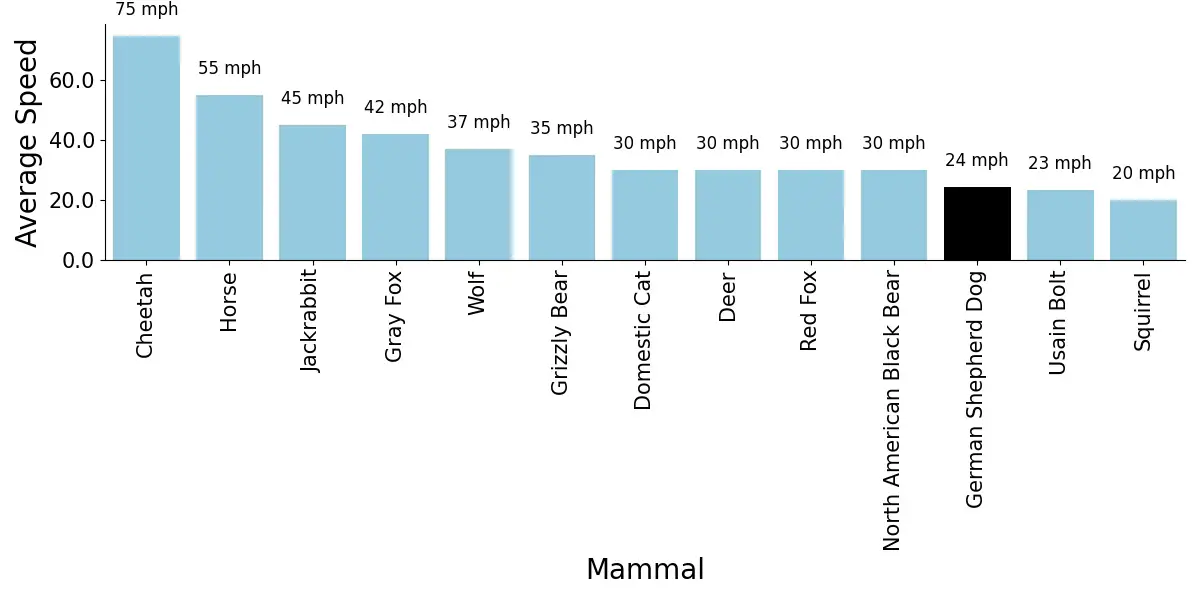
Good Names for German Shepherd Dogs
Here are some really good names that are typical for the German Shepherd Dog ranked by popularity:
- Max
- Dane
- Ace
- Oso
- Apollo
- Dog
- Felix
- Balto
- Vince
- Sarge

How Intelligent are German Shepherd Dogs?
| German Shepherd Dog | |
|---|---|
| Intelligence Rank | 3 out of 130 dog breeds |
| Trainability | Tend To Learn New Commands After Fewer Than 5 Repetitions |
According to Prof. Stanley Coren, a Canadian psychology professor/dog trainer, the total intelligence that a dog demonstrates is the addition of three types of intelligence. These intelligence types are:
- Instinctive Intelligence: This is the natural intelligence that comes from instinct. For example, dog breeds that have been historically bred to be guard dogs will have a high `guarding` intelligence compared to dogs that were not bred for guarding.
- Adaptive Intelligence (learning and problem-solving ability): This indicates what a dog can learn to do for himself or herself. Adaptive intelligence is specific to each dog, and not breed specific. You can improve your dog`s adaptive intelligence by investing time to train your dog.
- Working/Obedience Intelligence: This type of intelligence is breed-specific. Certain dog breeds tend to have higher working/obedience intelligence than some other breeds. This intelligence is the closest to what we might call school-learning ability and it is based upon what the dog can learn to do when instructed by humans. This type of intelligence can be measured for each dog breed and compared to that of other dog breeds.
Professor Stanley Coren measured and ranked the working intelligence of about 130 different dog breeds.
Prof. Coren found that the German Shepherd Dog has an obedience intelligence rank of 3 out of 130 dog breeds. Thus, Prof. Coren put German Shepherd Dogs in the `Brightest Dogs` category.
This means that German Shepherd Dogs tend to learn new commands after fewer than 5 repetitions.
However, we should mention that a dog should not be judged based on its intelligence alone. There are other important factors you need to consider when deciding on which dog breed to get. These other factors include sociability, adorability, and compatibility of the dog breed with your lifestyle.
See the intelligence ranking of some other dog breeds below:
| Breed | Intelligence Rank |
|---|---|
| Golden Retriever | 4 |
| Labrador Retriever | 7 |
| Miniature Schnauzer | 12 |
| Weimaraner | 21 |
| Pomeranian | 23 |
| Cardigan Welsh Corgi | 26 |
| Welsh Springer Spaniel | 31 |
| American Staffordshire Terrier | 34 |
| Affenpinscher | 37 |
| Curly-Coated Retriever | 41 |
| American Water Spaniel | 44 |
| Dachshund | 49 |
| Pug | 57 |
| Italian Greyhound | 60 |
| Chinese Crested | 61 |
| Saint Bernard | 65 |
| Beagle | 72 |
| Pekingese | 73 |
| Basenji | 78 |
| Afghan Hound | 79 |
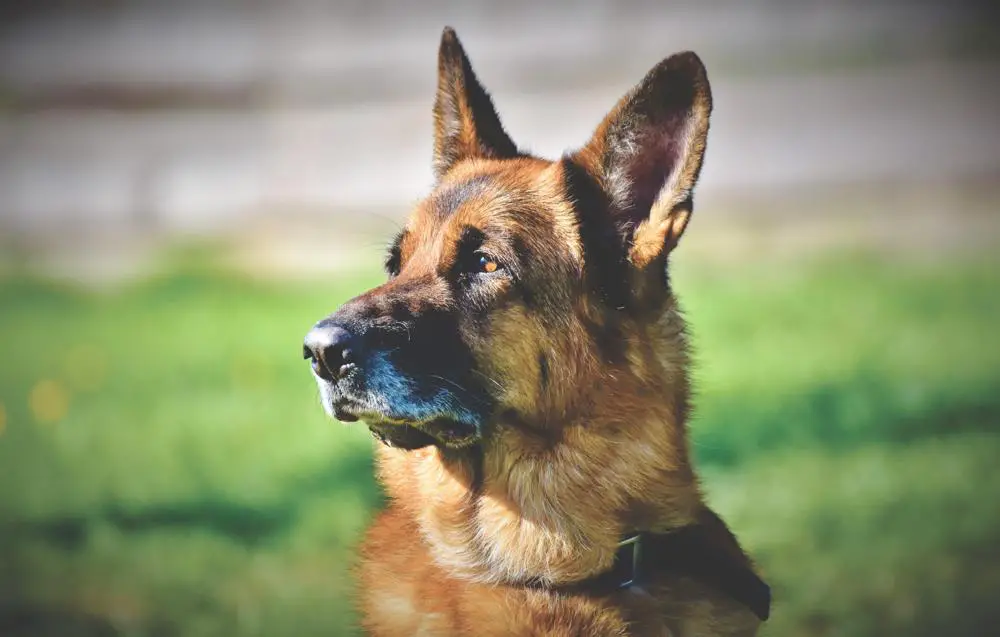
How Popular are German Shepherd Dogs with New Dog Owners?
Every year, the American Kennel Club (AKC) publishes information on how popular a dog breed is in that particular year. The AKC gets the popularity information of a breed from how many dogs of that breed the owners register with the AKC every year. The AKC collects this data for about 200 dog breeds.
The graph below shows the popularity trend of the German Shepherd Dog.
The popularity of the German Shepherd Dog averaged over the years is Number 2 out of about 200 dog breeds.

Do not get a dog breed just because it is a popular dog breed. And do not reject a dog breed just because it is an unpopular breed.
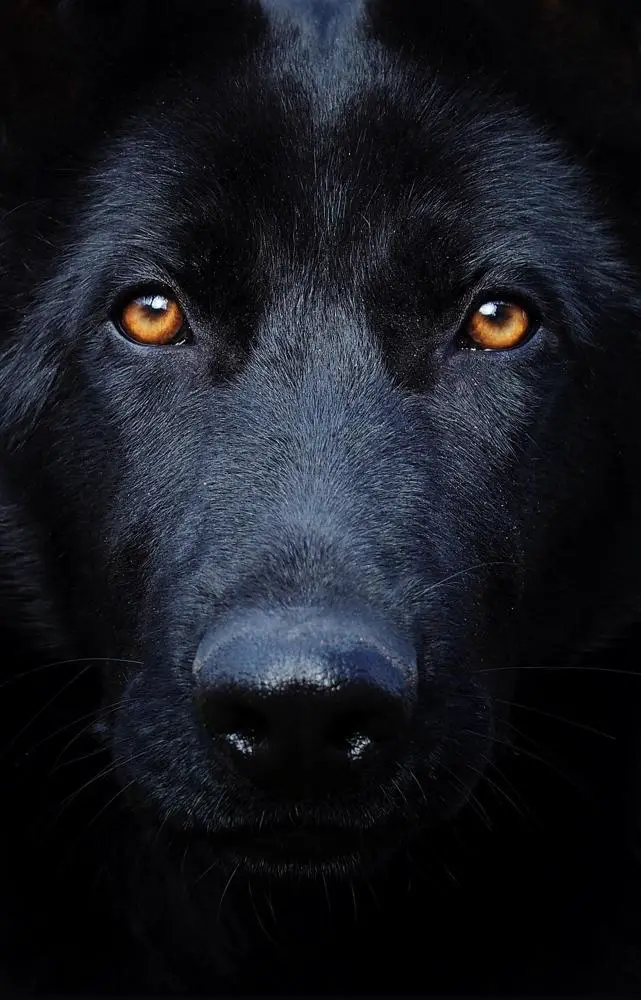
Health Problems in German Shepherd Dogs and How to Prevent Them
Every dog breed has its own set of health problems that it tends to develop. There is nothing like a perfect dog breed.
The German Shepherd Dog is prone to certain genetic health conditions. The Orthopedic Foundation for Animals (OFA) is an organization that keeps track of genetic health problems in dog breeds.
From the extensive records that the OFA keeps, the OFA knows what health problems each dog breed is naturally prone to develop.
Hence, the OFA recommends which health screening breeders should perform on a dog breed to make sure that the breeders won`t breed `defective` dog parents that can pass down defective genes to their puppy offspring.
If you want a German Shepherd Dog puppy that will grow up to be healthy, make sure that your German Shepherd Dog breeder screens your puppy or your puppy`s parents for the health problems that the OFA recommends for your puppy`s breed. This will increase the chances that your puppy is free from genetic defects.
The following are the health tests that Orthopedic Foundation for Animals (OFA) recommends that breeders should screen German Shepherd Dogs for:
- Autoimmune thyroiditis
- Cardiac Evaluation
- Degenerative Myelopathy
- Elbow Dysplasia
- Eye Examination- recommend annually until age 6, every 2 years thereafter
- Hip Dysplasia
- Temperament Test
You can find out more about OFA`s recommended tests for German Shepherd Dogs here.
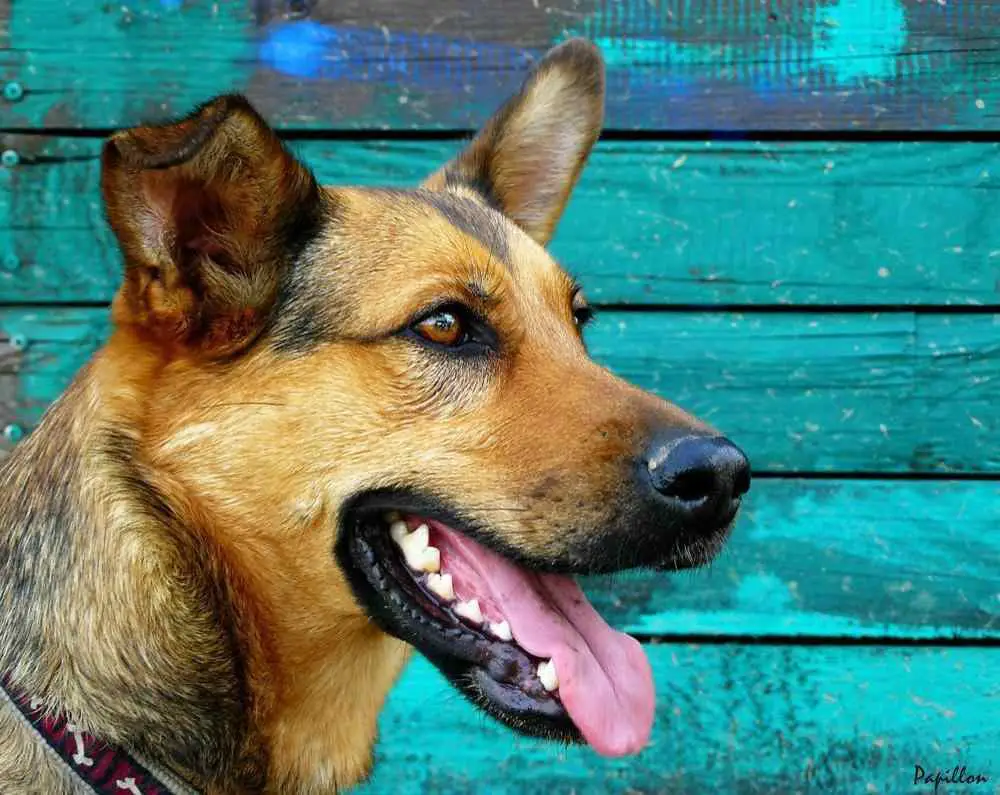
How to Take Care of German Shepherd Dog
To take good care of your German Shepherd Dog, you need to make sure that you groom your German Shepherd Dog regularly.
Secondly, you need to find a veterinarian in your area that will routinely check the health status of your German Shepherd Dog regularly, and give you appropriate recommendations on your German Shepherd Dog`s preventative care.
Thirdly, you need to commit some time to exercise your German Shepherd Dog daily. Regular exercise helps improve the health and quality of life of your German Shepherd Dog.
Also, you need to feed your German Shepherd Dog high-quality dog food, and the food should be of the right amount to prevent your German Shepherd Dog from getting overweight or underweight.
See our recommendations on what to feed the German Shepherd Dog and how much food to feed the German Shepherd Dog at different life stages.
Finally, you need to make sure that your German Shepherd Dog has access to clean water all the time. See our recommendations on how much water your German Shepherd Dog needs to drink at different ages.
Dog Breeds That Are Similar to German Shepherd Dogs
If you have not made up your mind on which dog breed to get, you may also want to consider some other dogs similar to the German Shepherd Dog.
We crunched the numbers and found that the following dog breeds that have similar behavior and temperament as the German Shepherd Dog:
- American Pit Bull Terrier (77 percent match with German Shepherd Dog). Learn more about the American Pit Bull Terrier here.
- Appenzeller Sennenhunde (72 percent match with German Shepherd Dog). Learn more about the Appenzeller Sennenhunde here.
- Belgian Malinois (74 percent match with German Shepherd Dog). Learn more about the Belgian Malinois here.
- Entlebucher Mountain Dog (74 percent match with German Shepherd Dog). Learn more about the Entlebucher Mountain Dog here.
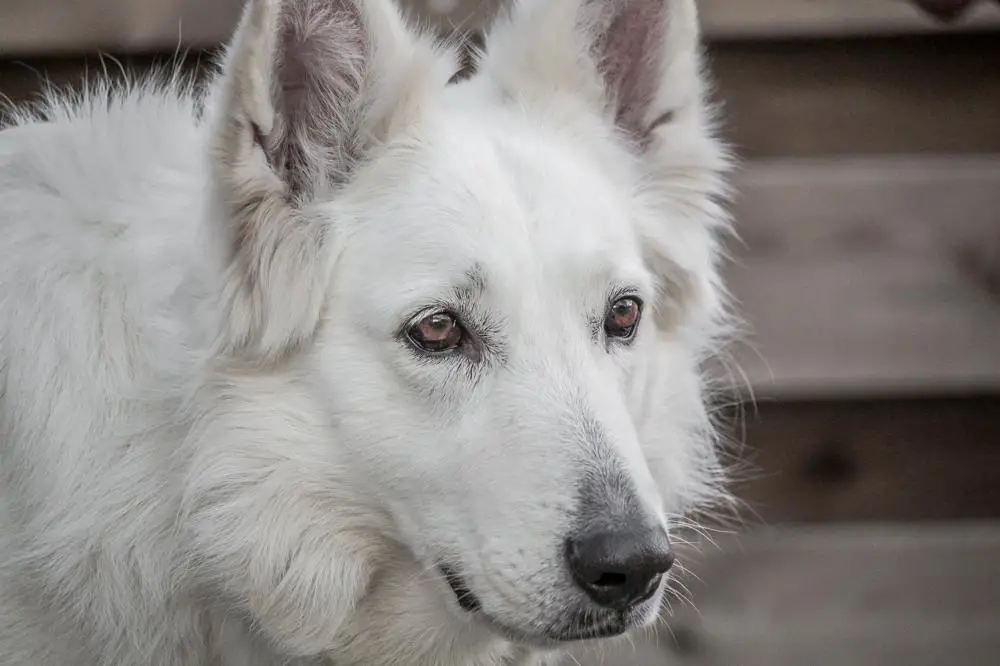
Other Things to Know About German Shepherd Dogs
Here are some of the very important characteristics of the German Shepherd Dog that you need to know about the German Shepherd Dog breed:
